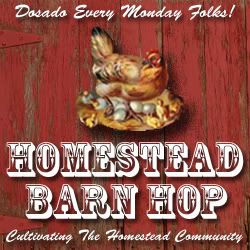I thought some of you might be interested in some of the most interesting facts I've learned. If not you can skip to the recipe and just know that not only is it yummy, it is also good for you!
First, refined white flour is not a new thing. The ancient Egyptians were very adapt at refining flour and had white flours that would rival our modern day flour. For them the more refined the flour was the "better" and more expensive it was. White flour was a sign of wealth.
Gluten has always been present in wheat so why is it now such a big issue. It seems that gut health is more the issue than the gluten. Leaky gut syndrome refers to the intestines not filtering as they should. Particles that have not yet been fully digested and are too large are able to cross into the bloodstream. Most often when something ends up in the body where it doesn't belong the outcome isn't good. The body begins to fight that substance. Interestingly enough many of the same people that suffer from leaky gut syndrome also don't have the correct digestive enzymes to break gluten down. Of course traditionally a wider variety of grains were used as well, some of which are naturally lower in gluten.
Another key piece to the puzzle is yeast. For millenia, people have been baking their own bread. However they didn't open a little foil packet of bakers yeast to do so. Ancient peoples discovered that leaving a mixture of flour and water exposed to the air would "catch" the wild yeast, at least two different species. In turn these wild yeast would grown in the medium of water and flour. Of course while this produced a wonderful loaf of bread it was hard to commercialize. It took time and each loaf was unique. So bakers yeast was developed as the answer.
One should note that bakers yeast is one is only one species of yeast and is not one of the natural yeast that was used in baking. Also in order to ensure the consistent and reliable results a package of baker's yeast contains over 100 billion yeast cells. Natural starters contain very small amount of active yeast.
And I love this, fermented breads also contain bacteria caught from the air. Why is this important? These bacteria, usually from the lactobacilli family, feed of the maltose, one of the carbohydrates in flour that the yeast doesn't utilize. And it is important to note that these bacteria take about 12 hours to fully develop in the dough. They are not present in today's modern bread. The long fermentation time also allows for the gluten to be predigested making it easier on our guts.
So there you have it, the wild yeast and bacteria have a symbiotic relationship. The work together to make bread a whole food that is easier to digest and whose minerals are more bio-available.
Thanks if you actually read all of this. I hope you learned something. Now, as promised the overnight sourdough waffle recipe. Enjoy!
Ingredients:
Overnight Sponge
- 2 cups of White Whole Wheat Flour
- 2 Tbsp Evaporated Cane Juice
- 2 Cups Kefir
- 1 Cup Sourdough Starter (unfed)
Waffle Batter
- All of the overnight sponge
- 2 large eggs
- 1/4 cup melted coconut oil
- 1 tsp vanilla extract
- 1/2 tsp salt
- 1 tsp baking soda
The night before you will want to mix up your sponge. In a large bowl mix the flour, sugar, kefir and starter. Cover and let sit out on the counter overnight. No need to worry about it going bad. All the good bacteria in the kefir and starter. I love mixing this up the night before. Makes getting breakfast on the table much simpler.
In the morning your sponge should look, well spongy. It will have risen and have lots of lovely little bubbles in it.
Now you are ready to add the rest of the ingredients. Mix well. If you are not used to working with sourdough batters this will seem a little strange to you. They have a very elastic consistency to them. It can take a bit to get everything incorporated well. Just stick with it. It will come together.
Now all you have left to do is cook your waffles. We use a Belgian waffle iron. This recipe will make about 6 waffles yummy waffles. We top them is pastured butter and local maple syrup!
I'm linking up over at Traditional Tuesdays, Scratch Cooking' Tuesday and Friday Homemaking.
.jpg)



















I've been playing with sourdough too :-). Thanks for sharing this with us at Scratch Cookin' Tuesday ...
ReplyDeleteOkay, this fascinates me. I recently, let my daughter play with home-made dough - flour and water - it might even have had some salt in it - we ended up putting it into a ziploc - well the next day it had grown - did that make it a sponge? The bag was inflated, but not overly like it was going to burst - it didnt' smell bad, but I was afraid to "use it" so I threw it away. I assumed at the time it must have picked up some wild yeast - I want to make a starter, a sponge and some bread. Well, when I have time, that is. Thanks for the post.
ReplyDeleteCathy
I made these last night... OH MY HOLY SMOKE! Super amazing! They are filling, but don't cause me to feel bloated like most wheat/yeast things. This soaking process also breaks down (or predigests) proteins in the grains, making them easier on your digestive system and the fermented grains to neutralize phytic acid and release nutrients in the grains for absorption. AND .. they are DELICIOUS. I will be making these once a week! Did I mention super easy (if you already have a good sourdough start). Thanks SO much for posting this super food recipe!
ReplyDelete